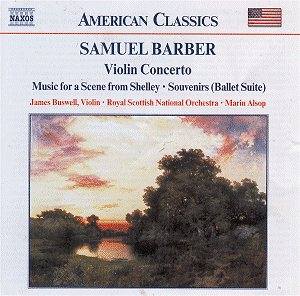 Composer: George Gershwin
Composer: George Gershwin
Works: Nice work if you can get it; A foggy day; Love is here to stay; I’ll build a stairway to heaven; Love walked in; By Strauss; Swanee; The man I love; Somebody loves me; They can’t take that away from me
Performers: Tactus String Quartet
Recording: No recording date or location provided
Label: Pavane ADW 7273
George Gershwin, a towering figure in American music, occupied a unique space at the intersection of classical and popular idioms. His ability to weave the vibrant threads of jazz into the fabric of concert music has left a lasting legacy, one that continues to inspire reimaginings across a variety of formats. The Tactus String Quartet’s recent release, featuring arrangements by Bill Thorp, offers a fresh perspective on Gershwin’s beloved songs. While these arrangements seek to capture the essence of Gershwin’s genius, they raise intriguing questions about the nature of adaptation and the role of the performer in translating popular song into the concert hall.
Thorp’s arrangements stand out for their inclusion of verses, which are often omitted in similar settings, thus providing a fuller narrative arc to each piece. For instance, the opening track, “Nice work if you can get it,” is enlivened by Thorp’s clever embellishments, with runs that evoke the playful spirit of Gershwin’s original. The quartet’s performance, characterized by a carefully measured vibrato and a polished ensemble sound, effectively captures the lightheartedness of the material. However, it occasionally lacks the raw energy that might animate these works in a more jazz-inflected context. In particular, the quotation from “It Ain’t Necessarily So” at the conclusion of “Nice work if you can get it” feels somewhat heavy-handed, detracting from the whimsical elegance that Gershwin often encapsulated in his melodies.
Recording quality merits discussion, as the sound engineering here is both clear and intimate, allowing for each instrument to shine. The Tactus String Quartet’s use of divided lines and cello pizzicatos introduces a delightful rhythmic complexity, particularly evident in “Somebody loves me,” where the interplay among the instruments is both sprightly and engaging. Yet, one might wish for a bit more dynamism and contrast, as the overall interpretation leans towards a polished, if somewhat restrained, approach. This restraint can sometimes obscure the emotional depth inherent in Gershwin’s work, a quality that other performances—such as those by the Emerson String Quartet—have captured with more visceral intensity.
Thorp’s penchant for integrating quotations from other works, such as the New World Symphony and “Old Folks at Home,” is a double-edged sword. While such intertextuality can enrich the listening experience, in the case of “Swannee,” it feels more like a gimmick than a meaningful homage. The musical dialogue, rather than flowing seamlessly, becomes a series of disparate references that may alienate listeners unfamiliar with Gershwin’s broader oeuvre. The moments of subtlety, like in “A foggy day,” where Thorp’s arrangements elegantly dance around the original melodies, are far more successful and align more closely with the spirit of Gershwin’s innovation.
The brevity of the album—clocking in at a mere 33 minutes—leaves one longing for more substantial exploration of Gershwin’s canon. While the arrangements are enjoyable and showcase the Tactus String Quartet’s technical prowess, the overall experience feels somewhat incomplete. One cannot help but draw comparisons with other recordings that delve deeper into Gershwin’s repertoire, offering not only the standard fare but also lesser-known gems that illuminate the composer’s range and depth.
The Tactus String Quartet’s “Tactus play Gershwin” presents a commendable effort to reinterpret Gershwin’s music through the lens of classical string quartet arrangements. The performances are characterized by a commendable level of technical skill and a thoughtful approach to the material. However, the execution occasionally falls short of capturing the vibrancy and emotional texture that define Gershwin’s legacy. The album serves as a pleasant introduction to Gershwin’s works in a new context, yet it leaves the listener yearning for a more dynamic and adventurous reimagining of this quintessentially American music.



